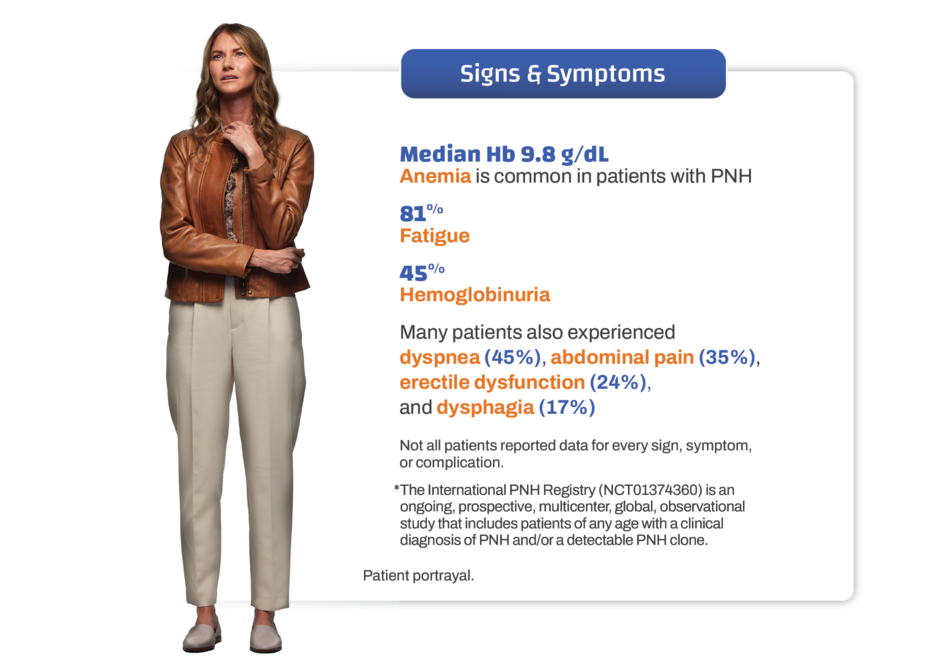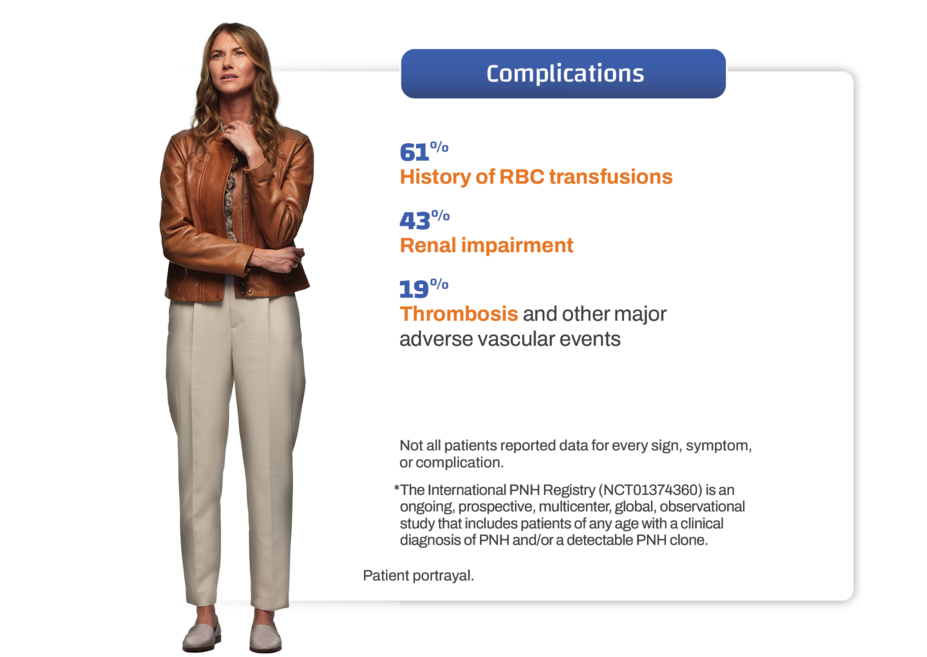PNH is characterized by hemolysis, thrombosis, and bone marrow failure
PNH is a rare, acquired clonal disorder of hematopoietic stem cells caused by a somatic mutation in the PIG-A gene. In PNH, red blood cells (RBCs) become deficient in the proteins CD55 and CD59, which are required to protect them from complement-mediated hemolysis.1-3
PNH varies in presentation and is often associated with the following clinical conditions4,5:
Hemolysis
Coombs-negative hemolytic anemia
Hemoglobinuria
Unexplained/unusual thrombosis
Venous or arterial
Bone marrow failure syndromes
Aplastic anemia
Myelodysplastic syndrome
Unexplained cytopenias
Flow cytometry is the gold-standard test for diagnosing PNH. It detects RBCs that are partially or totally deficient in CD55 and CD595,6
PNH by the numbers
Hemolysis in PNH creates a high burden of disease for patients
In an analysis of data from the International PNH Registry,* untreated patients with PNH (N=4439) had extensive histories of physician-reported symptoms and complications, including7:
Many patients with PNH are anemic and dependent on RBC transfusions, and their most commonly reported symptom is fatigue7
Hb, hemoglobin; MOD, mechanism of disease; PIG-A, phosphatidylinositol glycan class A; PNH, paroxysmal nocturnal hemoglobinuria.
References: 1. Dingli D et al. Ann Hematol. 2022;101(2):251-263. 2. Cançado RD et al. Hematol Transfus Cell Ther. 2021;43(3):341-348. 3. Brodsky RA. Blood. 2009;113(26):6522-6527. 4. Patriquin CJ et al. Eur J Haematol. 2019;102(1):36-52. doi:101111/ejh.13176 5. Sharma VR. Clin Adv Hematol Oncol. 2013;(suppl11):13(9):2-8. 6. Sahin F et al. Am J Blood Res. 2016;6(2):19-27. 7. Schrezenmeier H et al. Ann Hematol. 2020;99(7):1505-1514. 8. Jalbert JJ et al. Blood. 2019;134(suppl1):3407. doi:10.1182/blood-2019-125867 9. Levy AR et al. Blood. 2019;134(suppl1):4803.






